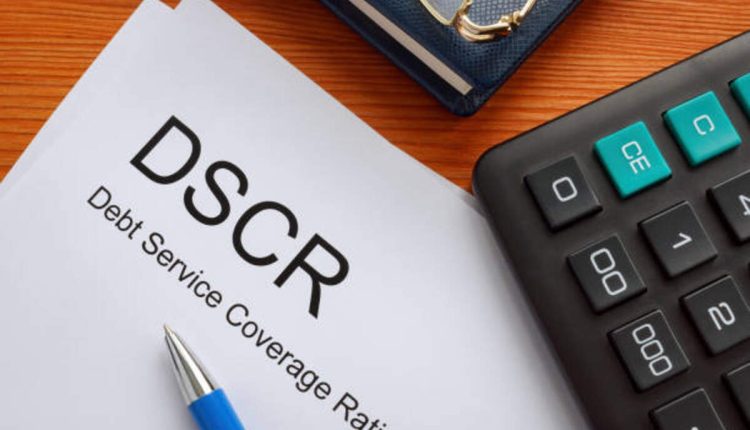Introduction to DSCR Loans
DSCR loans, or Debt Service Coverage Ratio loans, are becoming increasingly popular in the real estate investment world. But what exactly are they, and how do they work? This guide will take you through everything you need to know about DSCR loans, their advantages, and their potential pitfalls.
Understanding DSCR Loans: A Primer
DSCR loans are based on a property’s cash flow rather than a borrower’s personal income. This makes them an attractive option for real estate investors. The key metric here is the Debt Service Coverage Ratio, which measures a property’s ability to cover its debt obligations.
Advantages of DSCR Loans
Accessibility for Investors
One major advantage of DSCR loans is their accessibility. Investors who might not qualify for traditional loans due to irregular income can often secure financing through a DSCR loan.
No Personal Income Verification
A significant benefit of DSCR loans is that they do not require personal income verification. This aspect is particularly appealing to investors who have complex financial situations or multiple income streams.
Higher Borrowing Potential
Investors can potentially borrow more with a DSCR loan than with a traditional mortgage, as the loan amount is based on the property’s income-generating potential, not the borrower’s personal income.
Disadvantages of DSCR Loans
Higher Interest Rates
DSCR loans typically come with higher interest rates compared to traditional mortgages. This can mean higher costs over the life of the loan.
Larger Down Payments
Investors might need to provide larger down payments for DSCR loans, which can be a barrier for some.
Property Cash Flow Reliance
Since DSCR loans are based on property cash flow, any disruption in this flow can pose a risk to loan repayment.
Comparing DSCR Loans with Traditional Mortgages
DSCR loans and traditional mortgages differ mainly in their qualification criteria. While conventional mortgages focus on personal income, DSCR loans center on property income.
Ideal Candidates for DSCR Loans
DSCR loans are ideal for real estate investors, particularly those who rely on rental income. Investors with complex tax returns or those who own multiple properties often find DSCR loans more accessible than traditional financing options.
Navigating the Application Process for DSCR Loans
Applying for a DSCR loan requires a different approach. Focus on presenting a solid case regarding the property’s income potential. Understand the lender’s DSCR ratio requirements and prepare to demonstrate how your property meets or exceeds these standards.
Impact of Credit Scores on DSCR Loan Approval
While DSCR loans focus on property income, credit scores still play a role. A higher credit score can lead to more favorable loan terms, including lower interest rates.
DSCR Ratios Explained
The DSCR ratio is a key metric in these loans. It’s calculated by dividing the property’s annual net operating income by its annual debt service. A ratio over 1 indicates that the property generates enough income to cover its debt obligations.
Strategies to Improve Your DSCR
Improving your property’s DSCR can be achieved by increasing rental income, reducing operational costs, or choosing properties with higher income potential. This can enhance your chances of loan approval and better terms.
The Role of Property Types in DSCR Loans
Different property types, from single-family homes to multi-unit apartments, can affect the terms and approval of DSCR loans. Lenders may have other criteria based on property types.
Case Studies: Successful DSCR Loan Applications
Real-world examples can provide valuable insights. Examining successful DSCR loan applications reveals common factors like property type, location, and borrower strategy that contributed to their approval.
Common Pitfalls in DSCR Loan Applications
One common pitfall is overestimating rental income potential. Applicants should provide realistic income projections. Another is underestimating maintenance and operational costs, which can lead to an inflated DSCR ratio.
The Future of DSCR Loans in Real Estate Financing
The future of DSCR loans looks promising, especially as more investors seek flexible financing options. Their popularity may continue to grow as the real estate market evolves.
Expert Opinions: What Financial Advisors Say About DSCR Loans
Financial advisors often view DSCR loans as a useful tool for certain investors, especially those focused on long-term rental properties. However, they caution investors to consider the higher interest rates and potential risks.
Regulatory Landscape for DSCR Loans
Understanding the current regulatory landscape is crucial. Regulations can vary by region and impact loan terms, approval processes, and borrower obligations.
DSCR Loans in Different Market Conditions
DSCR loans can be affected by market conditions. In a booming real estate market, they might be easier to secure, but in a downturn, lenders might tighten their requirements.
Long-Term vs. Short-Term DSCR Loans
The choice between long-term and short-term DSCR loans depends on your investment strategy. Long-term loans may offer stability, while short-term loans can provide flexibility for investors looking to renovate and flip properties.
Tax Implications of DSCR Loans
It’s essential to understand the tax implications of DSCR loans. Interest on these loans is typically tax-deductible, but it’s advisable to consult with a tax professional for specific advice.
DSCR Loans for First-Time Investors
First-time investors can consider DSCR loans, but they should be aware of the risks and challenges, especially the reliance on property income to meet loan obligations.
Refinancing Options with DSCR Loans
Refinancing a DSCR loan can be an option for investors looking to secure better terms or leverage increased property values. It’s essential to weigh the benefits against potential refinancing costs.
Analyzing the Risk Factor in DSCR Loans
Understanding the risks, such as reliance on continuous rental income and market fluctuations, is crucial. A thorough risk assessment can guide your decision-making process.
DSCR Loans and Real Estate Market Trends
Staying informed about real estate market trends is vital. Market shifts can impact property values, rental incomes, and the overall feasibility of a DSCR loan.
Expanding Your Investment Portfolio with DSCR Loans

Understanding the Versatility of DSCR Loans for Various Investment Strategies
DSCR loans are not just for purchasing new properties. They can also be a strategic tool for refinancing existing investments, acquiring properties for renovation, or diversifying an investment portfolio. The flexibility of DSCR loans makes them suitable for various investment strategies, from long-term rentals to fix-and-flip projects.
Leveraging DSCR Loans for Multi-Property Portfolios
For investors with multiple properties, DSCR loans can simplify the financing process. By focusing on the income produced by each property, investors can more easily scale their portfolios without the constraints typically associated with personal income-based loans.
Innovative Uses of DSCR Loans in Real Estate Investment
Beyond traditional real estate purchases, savvy investors use DSCR loans for purposes like converting properties into higher-income-producing units, such as turning single-family homes into multi-tenant properties. This creativity can significantly enhance investment returns.
DSCR Loans: A Tool for Economic Uncertainty
How DSCR Loans Provide Stability in Volatile Markets
In times of economic uncertainty, DSCR loans can offer a buffer. Since they are based on the property’s income, they may be less susceptible to the fluctuations of the broader economy, providing a steadier financing option.
Risk Management Strategies with DSCR Loans
Effective risk management with DSCR loans involves conservative estimation of rental income, diversification across different types of properties, and maintaining a robust emergency fund to cover unforeseen vacancies or repairs.
The Global Perspective on DSCR Loans
Comparing DSCR Loans in Different Countries
DSCR loans are not exclusive to any single country’s real estate market. However, the terms, conditions, and popularity of these loans can vary significantly across different regions. Understanding these variations is crucial for international investors.
Adapting DSCR Loan Strategies for International Investments
When using DSCR loans for international real estate investments, it’s essential to account for factors like foreign exchange risks, differing property laws, and varied economic conditions. This requires thorough research and possibly consultation with international real estate experts.
Future Developments and Innovations in DSCR Loans
Technological Advancements Impacting DSCR Loans
The future of DSCR loans may be shaped by technological advancements, such as AI-driven property valuation models, blockchain for secure and efficient transactions, and enhanced data analytics for predicting rental income trends.
Predicting the Evolution of DSCR Loan Products
As the market evolves, so too will DSCR loan products. We might see more tailored options for different types of investors, innovative loan structures, and perhaps a greater integration of DSCR loans into mainstream financing options.
FAQs About DSCR Loans
What is a DSCR loan?
A DSCR loan is a type of real estate loan where the approval is primarily based on the cash flow generated by the property rather than the personal income of the borrower. The Debt Service Coverage Ratio (DSCR) is a key metric used to assess the property's ability to cover its mortgage and operating expenses.
Who should consider a DSCR loan?
DSCR loans are ideal for real estate investors, especially those who may not qualify for traditional mortgages due to fluctuating or unconventional income but own cash-flow-positive properties.
What are the main advantages of a DSCR loan?
The main advantages include no requirement for personal income verification, potential for higher borrowing based on property income, and accessibility for investors with multiple income sources or complex financial situations.
Are there any significant disadvantages to DSCR loans?
Yes, the disadvantages include generally higher interest rates, the need for larger down payments, and reliance on property cash flow, which can be unpredictable.
How does a DSCR loan differ from a traditional mortgage?
Unlike traditional mortgages that focus on the borrower's personal income and creditworthiness, DSCR loans focus on the income generated by the property being financed.
What factors affect the approval of a DSCR loan?
Key factors include the property’s income potential, the borrower's credit score, the DSCR ratio, and the overall financial health of the investment.
Conclusion: Is a DSCR Loan Right for You?
DSCR loans present a unique opportunity for real estate investors, particularly those who might not fit the traditional lending mold. These loans offer the flexibility to leverage property income for financing, but they also come with specific challenges, such as higher interest rates and a dependence on consistent rental income. As with any financial decision, it’s essential to conduct thorough research, understand the risks, and consult with financial advisors to determine if a DSCR loan aligns with your investment goals and financial situation. By carefully weighing the pros and cons and staying informed about market trends, investors can make educated decisions about utilizing DSCR loans to build and sustain a successful real estate portfolio.
Read also: Rebuilding Your Credit: Steps to Take


